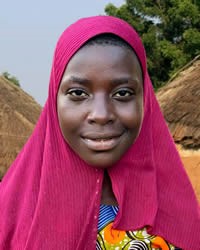Dagomba in Ghana

Photo Source:
Copyrighted © 2026
Kerry Olson All rights reserved. Used with permission |
Send Joshua Project a map of this people group.
|
| People Name: | Dagomba |
| Country: | Ghana |
| 10/40 Window: | No |
| Population: | 1,521,000 |
| World Population: | 1,536,000 |
| Primary Language: | Dagbani |
| Primary Religion: | Islam |
| Christian Adherents: | 22.00 % |
| Evangelicals: | 8.74 % |
| Scripture: | Complete Bible |
| Ministry Resources: | Yes |
| Jesus Film: | Yes |
| Audio Recordings: | Yes |
| People Cluster: | Gur |
| Affinity Bloc: | Sub-Saharan Peoples |
| Progress Level: |
|
Introduction / History
The Dagbani people, also called the Dagomba, are one of the largest ethnic groups in northern Ghana. They belong to the Mole-Dagbani ethnic group, which also includes the Mamprusi and Nanumba people. The Dagbani language, a branch of the Gur language family, is widely spoken and serves as a major local language in Ghana.
The Dagbani people primarily live in the Northern Region of Ghana, with Tamale, Yendi, and Savelugu being key towns. According to the 2021 Ghana Population and Housing Census (GSS, 2021), the Dagbani form the dominant ethnic group in northern Ghana, numbering over 1.16 million people.
What Are Their Lives Like?
The Dagbani are predominantly agrarian, with farming and animal husbandry forming the backbone of their economy. They cultivate maize, millet, yam, groundnuts, and rice, relying on seasonal rains. The dry season limits agricultural activities, leading to food insecurity in some areas. Many Dagbani people keep cattle, goats, sheep, and poultry, often as a form of wealth.
In urban areas like Tamale, they engage in trading textiles, shea butter, and livestock at major markets.
The Dagbani people have a well-organized chieftaincy system, with the Yaa Naa (King of Dagbon) as the supreme leader based in Yendi. Chiefs play political, judicial, and spiritual roles in society (Ladouceur, 1979).
Education in Dagbon has improved, yet literacy rates remain below the national average, especially among rural communities and women (Ghana Statistical Service, 2021). Many children leave school early to work on farms or marry young.
What Are Their Beliefs?
The Dagbani people primarily follow Islam, with a minority practicing traditional African Religion or Christianity. Most are Sunni Muslims, influenced by early trade routes from Mali and Hausa traders. Mosques and Islamic schools (madrasas) are widespread.PRGRPHSome still practice ancestral worship, relying on shrines, diviners and rituals. Their funeral rites are a mixture of Islamic and traditional practices, sometimes involving animal sacrifices. They celebrate their Islamic heritage and Dagbani chieftaincy traditions. Their naming ceremony involves Islamic prayers recited over newborns on the 7th day.PRGRPHChristianity is growing in urban areas but faces resistance in traditional settings.PRGRPHTraditional ceremonies include a Fire Festival. This is an ancient traditional celebration marks historical and spiritual events.
What Are Their Needs?
Many rural Dagbani communities lack clean drinking water, leading to high disease rates.
High maternal and infant mortality rates remain a challenge (WHO Ghana, 2023).
Many girls drop out due to poverty or early marriage.
They need sustaina
Prayer Points
Pray the Dagbani people would be receptive to the gospel.
Pray that God would send more workers and strengthen local believers in Ghana.
Pray for economic and social development – They need clean water, healthcare, and education in rural areas.
Pray for Peace in Dagbon – Past chieftaincy disputes have caused unrest; pray for unity.